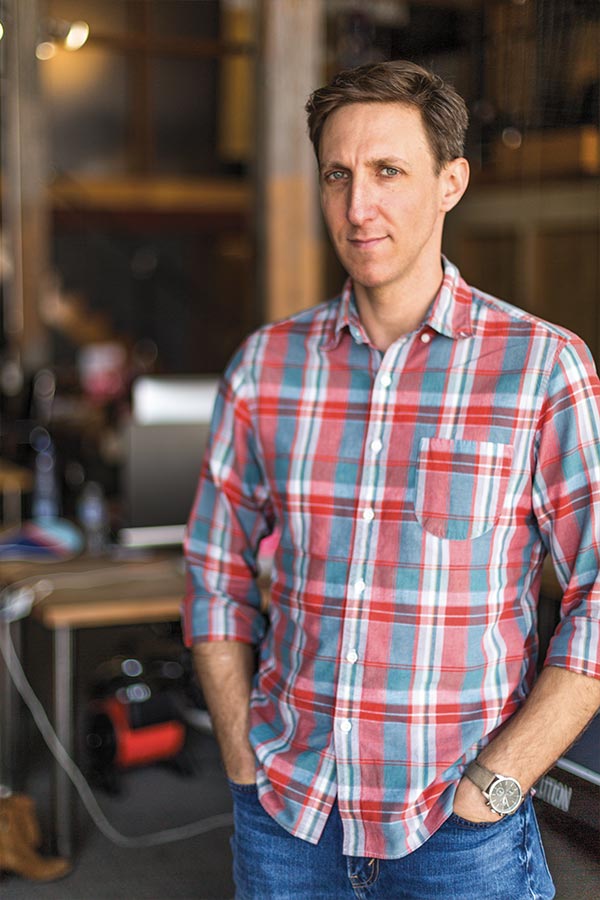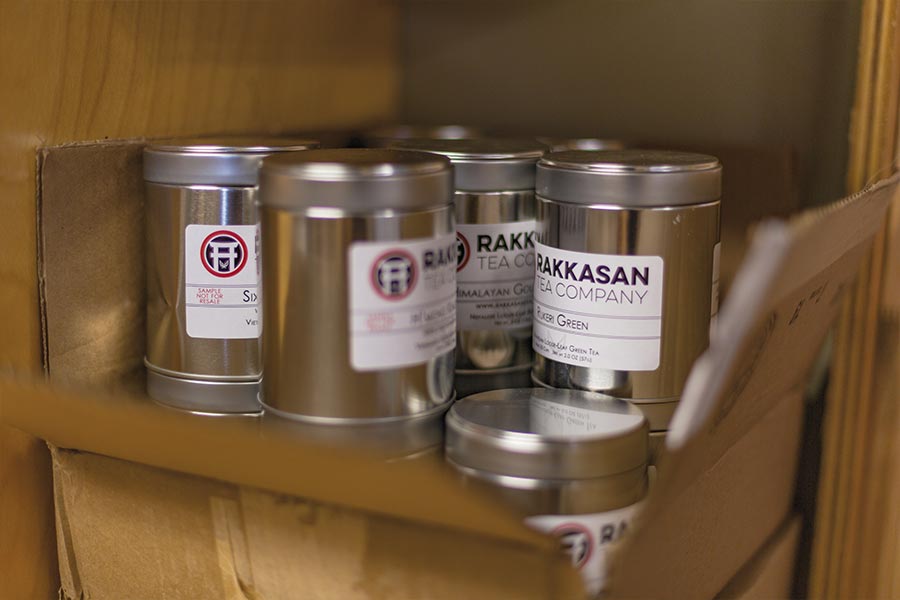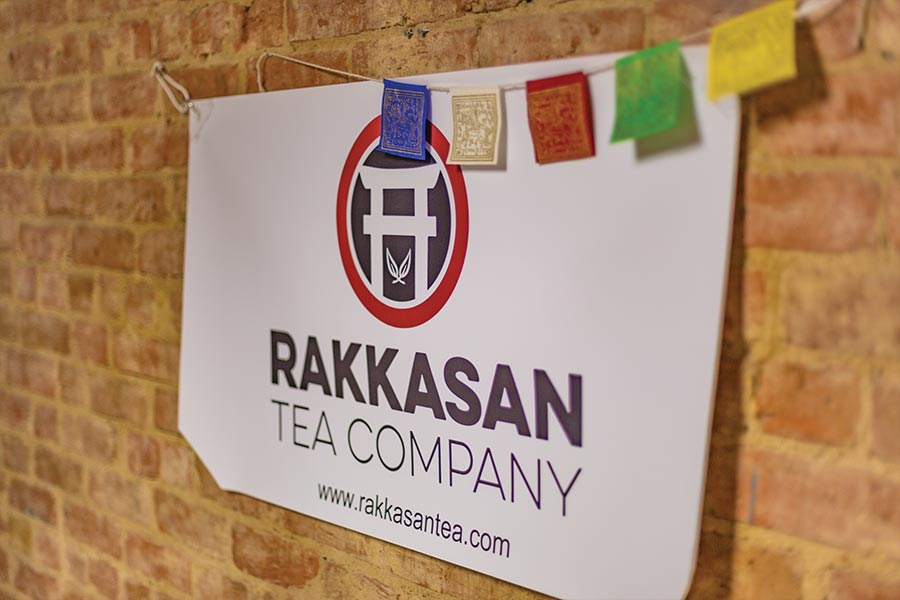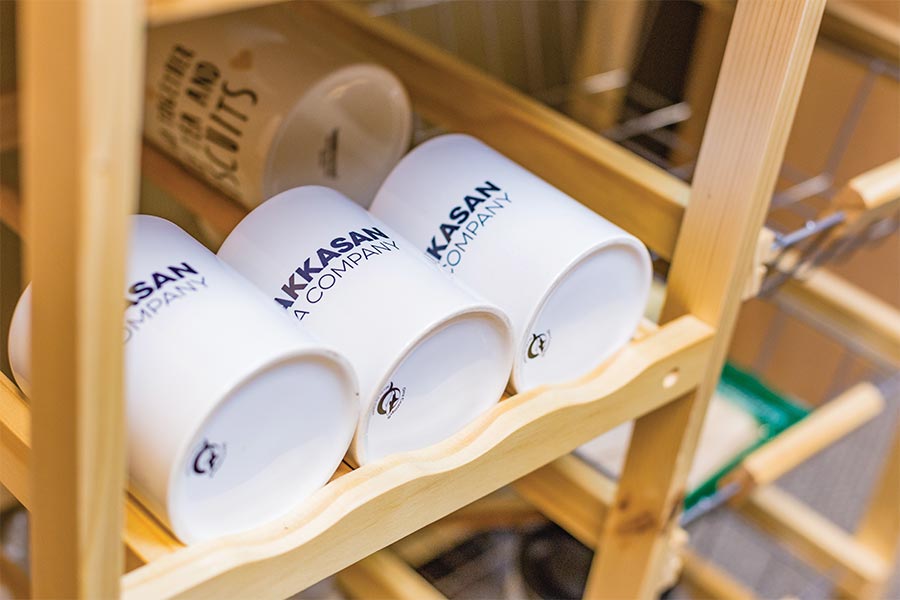Reading Peace in the Tea Leaves
 Brandon Friedman
Brandon Friedman
Brandon Friedman MPA’06 believes in peace and progress through tea.
“Growing up, I didn’t know much about tea beyond southern-style iced tea,” said Friedman. “Or it was synonymous with British teatime, with doilies and biscuits and all that.”
It wasn’t until his deployment as an infantry officer in Afghanistan and Iraq that tea became a part of everyday life, filling the role at gatherings that alcohol might back home.
“If you’re going to sit down for anything with three or more people, you put on tea. And in Iraq, they fill half the thing with sugar,” Friedman said.
Long stretches of his deployment were spent in towns and villages across Asia and the Middle East. There was plenty of time for talk and tea.
“In between missions, planning strategy—it didn’t matter. There was always hot tea.”
Somewhere along the way, he fell in love with it.
Friedman, a Louisiana State University Shreveport graduate, left the Army in 2004, keen on pivoting into politics. He invested some time in personal reflection, backpacking across Europe. When he returned, he sought to further his education.
“I started applying for master’s programs, not realizing it wasn’t the fastest option,” Friedman said. “On top of that, I thought political science was the same as actual politics. I was interested in public service and making the world a better place, but I didn’t really know what route to take.”
He chose The University of Texas at Dallas since it was the perfect marriage of price, proximity and opportunity. He sought mentorship from faculty members such as Dr. Douglas Kiel, professor of public affairs, and Ted Benavides, senior lecturer in public affairs, both in the School of Economic, Political and Policy Sciences.
“I didn’t have that academic underpinning, and that’s what the program gave to me. It enabled me to know what ‘right’ looked like,” he said.

Opportunity Blooms
After Friedman graduated from UT Dallas, he began working with VoteVets.org, an organization that campaigns for veterans’ rights and resources. The job required frequent commuting to Washington, D.C., and New York City.
U.S. Sen. Tammy Duckworth, then director of the Illinois Department of Veterans’ Affairs, invited him in 2009 to join the Obama administration, where he served first at the Department of Veterans Affairs and later as the deputy assistant secretary for public affairs at the Department of Housing and Urban Development.
“I wanted to go work in politics in D.C. My family and I were there for eight years, and I got up to a pretty senior level. It was a once-in-a-lifetime opportunity, but it was also a beat-down. Beltway politics are no joke,” Friedman said.
“We didn’t have any family within a thousand miles, so we couldn’t see raising our 5-year-old son there,” he added. “I loved the experience, but I don’t regret moving back.”
Before returning to Dallas, he started a public relations firm with an old friend as his partner. But after a while, he wanted to do something with more of a purpose.
“Another friend told me you need to be selling a product,” Friedman said. “We both drink hot tea, but I had this idea to do something different.”
He thought that selling tea could be a way to introduce Americans to the war-torn countries he had come to appreciate. He now had a mission, a product, and a will to make it happen. All he lacked was the capital.

Steeped in Purpose
In early 2017, Friedman heard about a conference panel on post-conflict economic development that featured Nick Kesler, founder and president of VetImpact, an organization that empowers veteran entrepreneurs so they can operate internationally in post-conflict and emerging markets.
Kesler loved Friedman’s idea and agreed to help craft a plan, suggesting a Kickstarter campaign for initial funding. In September 2017, they sought $30,000 to cover startup costs.
The venture raised more than $36,000, giving life to Rakkasan Tea Co. (rakkasantea.com), a name taken from the nickname of the 187th Airborne Infantry Regiment, which in turn was derived from the Japanese word for parachute. Friedman needed no parachute this time, diving headlong into production.
“I just sort of closed my eyes and jumped in. It’s been scary,” he said.
Global Chamber Dallas named the Deep Ellum-based Rakkasan its “Startup Impact Importer of the Year” in November 2017, only two months after their Kickstarter campaign ended.
Friedman began taking courses to become a certified tea specialist, mastering a list of skills and practices. To offer teas from remote places, Friedman also needed connections — experts who knew the areas and languages. Such experts allow Rakkasan to make sure they pay a fair price to those growing and harvesting the tea.
Rakkasan initially offered teas from Nepal, Rwanda, Sri Lanka and Vietnam. Friedman said customers love teas that sound exotic, like Himalayan Black Dragon and White Sunrise.
“We want to move the image of tea away from the idea of British teatime and instead highlight regions known for teas that nobody ever hears about,” Friedman said.
He’s a big believer in peace through commerce and hopes that as Americans become more comfortable and familiar with tea and the places that provide it, cultural walls will begin to crumble. Every container of Rakkasan tea contains information on its country of origin.
“My association with Vietnam was much like other Americans’: Agent Orange, ‘Full Metal Jacket,’ and so on,” Friedman said. “But now that I’m doing business there, I realize we are so sheltered. I grew up during the Gulf War, and when I went to Iraq, it was nothing like what I was told. Americans tend to see foreign nations through a military lens.”

Putting the Tea in Teaching
Friedman is all too familiar with the difficulties facing veterans once they return from active service. That’s why he also wants to hire veterans at Rakkasan.
“The purpose here is twofold: We help communities recover from war both at home and abroad. Veterans come home, and many of them lose their sense of purpose,” Friedman said. “It’s so hard to go from possibly fighting for your life every day to working in an office.
“Veterans have experienced the world and know what it’s like to be thrust into a culture and language you don’t share. That’s a strength not shared by many others in the workforce.” Since operations began, Rakkasan has sold tea to customers in all 50 states and four other countries.
In late June, Rakkasan announced that it had secured tea from Laos, a region on Friedman’s list from the beginning — another nation whose products cannot be easily found in the states. Then in September, they began selling South American tea grown in Colombia.
“This is some special tea, and it’s an opportunity for U.S. tea drinkers to try something they’ve probably never had,” he said. “It’s also a great way to help rural farmers in recovering countries reach the U.S. market.
“When everyone is making money, they don’t have time to make war. Helping foreign countries improve their economies helps keep Americans safe.”
– Reporting by Chase Carter


